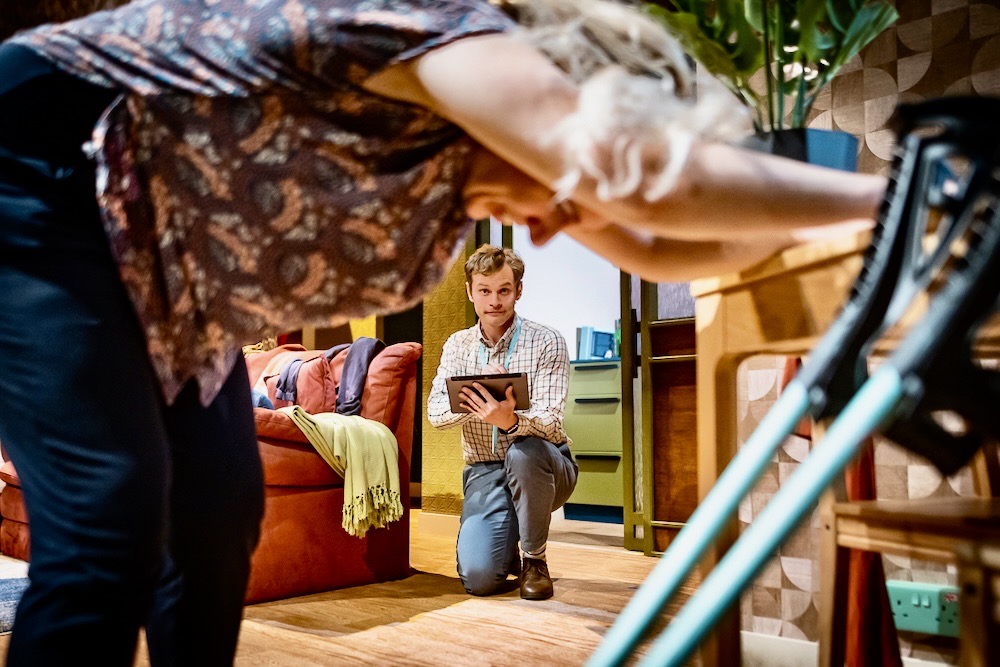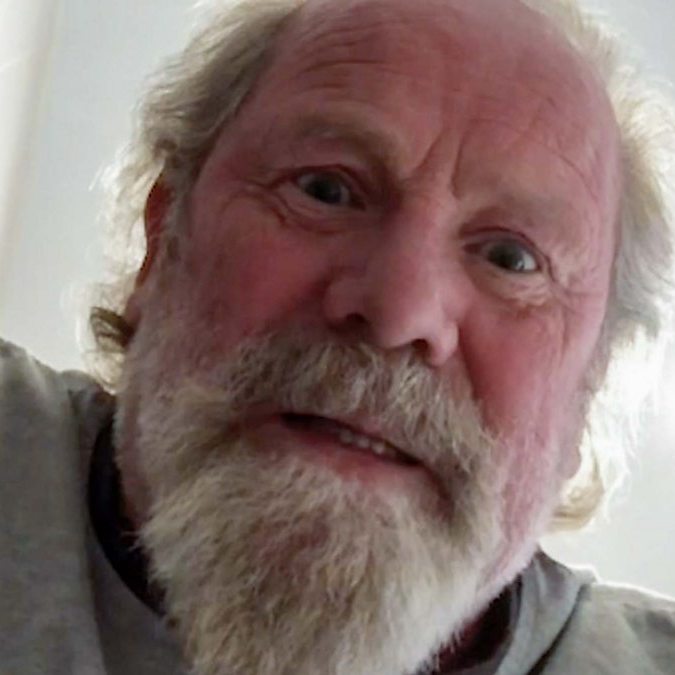


06/10/22
Traverse Theatre, Edinburgh
Chris (Gillian Dean) is feeling understandably nervous. It’s the year 2030 and today she’s having her assessment. Chris has OPMD, which means that she is partially sighted, has trouble walking and is in constant pain. This rare condition is degenerative, so things are only going to get worse – but, under a recently implemented system, claimants are assessed ‘positively’, i.e. on what they can do rather than on what they can’t do.
The process will be depressingly familiar to those who have been through a PIP assessment. Points are awarded throughout the frustratingly opaque interview. If Chris scores five, she will be expected to take on part-time work. Score ten and she can go full-time! All Chris knows is that she has no money in her account and her electricity supply is set to switch itself off when the meter hits zero. She’s desperate. Meanwhile, her life is supervised by ‘Able’, an Alexa-like hub that offers a commentary on everything she says and does… and may just be capable of informing on her should she ever step out of line.
Enter Ralph (Aidan Scott), the sly, smirking interrogator who will determine Chris’s future. ‘We listened,’ he keeps telling her, and then proceeds to turn her words against her. His questions are cunningly designed to trip her up and he’s on to all the received wisdom that has served her up to now (‘be you on your worst day’; ‘don’t show them you can make a cup of tea’).
This clever and prescient piece from Birds of Paradise Theatre, written by Rob Drummond and directed by Robert Softly Gale, is designed to be as accessible as possible. Able’s irksome commentary acts as a kind of audio description, while on a huge TV screen that dominates one wall, Francis (the engagingly comic Emery Hunter) helpfully translates everything into sign language. An overhead video display also offers viewers the text. I’ve rarely seen audio-visual aids so skilfully integrated; indeed, they are characters in their own right.
It’s a show of two halves. The first is essentially a taut two-hander as Chris and Ralph go through the various hoops and hurdles of the assessment. The narrative becomes increasingly adversarial and the interview builds to a frantic conclusion. As the lights go down for the interval, I ask myself where this can possibly go next.
The second act is an entirely different kind of beast, a high-powered slice of farce as new figures appear, seemingly out of nowhere. It would be wrong to give too much away but there are some wildly funny moments here, though the piece never forgets that it has an important message about disability rights to get across – something it skilfully manages without thumping me over the head.
Don’t. Make.Tea. is a dystopian vision of an all-too credible near future, a play laced with dark humour and some genuine surprises. Cleverly crafted to be accessible to the widest possible audience, it’s an exciting slice of contemporary theatre.
4.2 stars
Philip Caveney







